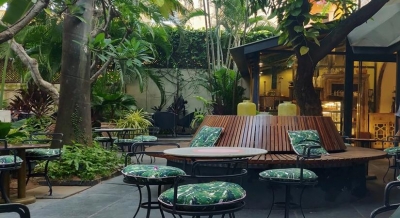Holistic approach to be truly eco-friendly
By IANS | Published: June 28, 2020 01:34 PM2020-06-28T13:34:01+5:302020-06-28T13:46:17+5:30
New Delhi, June 28 Sustainability is not a concept, its a way of living. Many often misinterpret the ...

Holistic approach to be truly eco-friendly
New Delhi, June 28 Sustainability is not a concept, its a way of living. Many often misinterpret the word and relate it only to energy consumption. But a holistic approach is required to be truly eco-friendly. The idea of a sustainable lifestyle means to live in a way that supports a healthy body and mind.
Meetu Akali, Founder, Studio Momo shares tips to make your house an eco-friendly home:
Planning and designing homes
It's extremely vital to ensure that there is maximum usage of natural light and natural ventilation. Whenever one is planning or redesigning homes, you can introduce elements like a courtyard, terrace gardens, roof gardens, vertical green walls, and water bodies. This way one can reduce the internal temperature of the house by at least 2-3 degrees and create the effect of micro-climate. These sustainable practices go a long way in reducing carbon footprints and the usage of electronics.
Natural cleaning products
Using harmful chemicals to clean is equally bad for the environment as for us. While washing them away you are simply putting them back into the water supply. That means water needs to undergo the purification process before it is safe to use again. Sometimes these chemicals get washed into the water bodies, making it unpotable and unsafe for animals. Conventional cleaning products pose risks such as chemical burns to the skin and eyes. Green cleaners aren't corrosive and meet strict standards regarding inhalation toxicity, combustibility, and skin absorption.
Make your compost
Overuse of chemical fertilizers can lead to leaf scorch, where vegetation withers and dies prematurely resulting in the acidification of soil, rendering its inorganic and mineral deficient. Such chemical effluents contaminate the groundwater reserves and give rise to severe illnesses in humankind as well as animals. If we can all cultivate non-toxic, fresh greens in our gardens by using natural compost as fertilizer, we have already taken a big step towards sustainable living.
Fertilizer made of compost improves the quality of soil by restoring moisture, air, and nutrients- it also reduces the amount of water required for gardening, thereby helping conserve the precious resource. Comprising dry leaves, cut grass, and organic kitchen waste, compost minimizes the release of methane gas in the environment and replenishes the nutrients in the soil, which is essential for the optimal growth of plants. Further, you can use this compost in creating your kitchen garden by growing vegetables and more.
Use recycled products
Recycling helps to reduce energy usage, reduce the consumption of fresh raw materials, air and water pollution
( With inputs from IANS )
Open in app